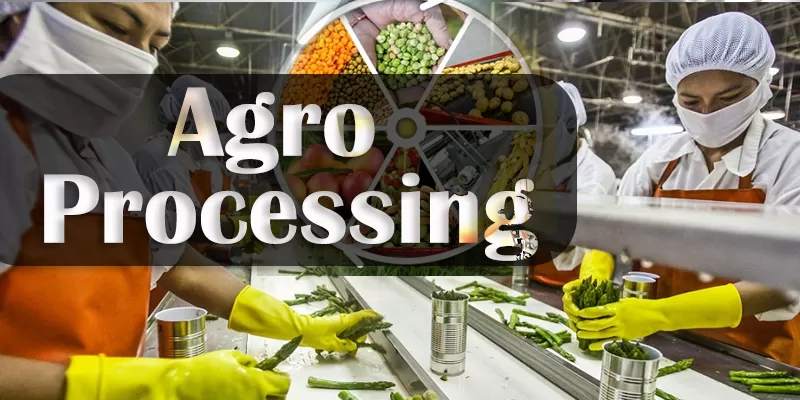
The Agro Processing trade, powered by NCVT (National Council for Vocational Training), is a job-oriented vocational program designed to meet the growing demands of the agro-based industries. This trade offers excellent opportunities for government jobs, private sector employment, and entrepreneurship, making it an ideal choice for individuals seeking self-empowerment and professional growth.
The ITI Agro Processing course is meticulously designed to fulfill the industrial requirements of both Indian and International agro-processing industries. It equips trainees with essential skills in pre-processing, processing, preparation, packaging, and quality control of various agricultural products.
Key Learning Areas
A trainee completing the Agro Processing trade will be skilled in:
- Pre-processing and preparation of whole pulses, cereals, spices, oilseeds, rice, and soy-based products.
- Operation and maintenance of various agro-processing machinery.
- Packaging of finished agro-products ensuring quality and safety standards.
- Quality analysis and control in agro-processing industries.
The training enables the candidates to efficiently handle agricultural produce from raw material to final processed products, ensuring they meet consumer demands and export standards.
Career Opportunities
After successful completion of the ITI Agro Processing course, trainees can find employment in the following roles:
- Quality Analyst in Agro Processing Industries.
- Supervisor in Food Processing Units.
- Packaging Supervisor in Agro-based Industries.
- Skilled Worker in Food Processing Multinational Companies (MNCs).
- Entrepreneur in Agro Processing and Food Product Manufacturing.
Employment Scope (National and International)
While there may not be any formal document establishing comparability with international qualifications, ITI Agro Processing pass-outs have been successfully employed in:
- Gulf countries
- European countries
- Australia
- New Zealand
- Singapore, and other regions
This highlights the global relevance and employment potential of the trade.
Why Choose Agro Processing ITI Trade?
✅ Government and private job opportunities
✅ High demand in food processing industries
✅ Entrepreneurship potential in the booming agro-business sector
✅ Skill development aligned with industry needs, both domestic and international
✅ Contributes to self-reliance (Aatmanirbhar Bharat) through self-employment opportunities
Skill Development and ITIs in India: Empowering the Youth
India, being one of the youngest nations in the world, boasts a vibrant and dynamic youth population. Our youth are the greatest strength of the nation, and their empowerment through skill development is vital for India's economic growth and global competitiveness. However, one of the major challenges facing the country is skilling our youth in alignment with the evolving demands of modern industries.
Recognizing the urgent need for a coordinated effort towards skill development and entrepreneurship, the Government of India established the Ministry of Skill Development and Entrepreneurship (MSDE) on 9th November 2014. This dedicated ministry was formed to bring together various stakeholders and consolidate efforts aimed at equipping the youth with employable skills.
To ensure further convergence between the Vocational Training System, specifically through Industrial Training Institutes (ITIs), and the Government’s new skill initiatives, significant restructuring took place. On 16th April 2015, the Training and Apprenticeship divisions from the Directorate General of Employment and Training (DGET), which was under the Ministry of Labour and Employment, were officially transferred to the Ministry of Skill Development and Entrepreneurship (MSDE).
This major structural change brought over 11,000 ITIs, along with numerous other vocational institutions and apprenticeship training divisions, under the MSDE. This consolidation has enhanced the skill ecosystem in India, ensuring better coordination, improved standards of training, and more effective implementation of various skill development initiatives.
The Ministry now plays a pivotal role in bridging the gap between skill demand and supply, creating a workforce that meets both national and international industry standards, and promoting entrepreneurship across India.
